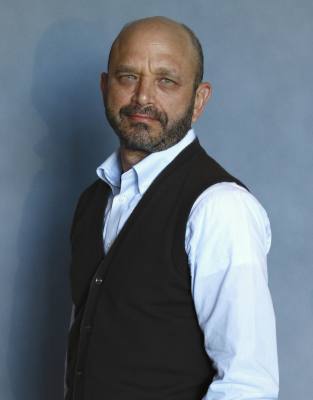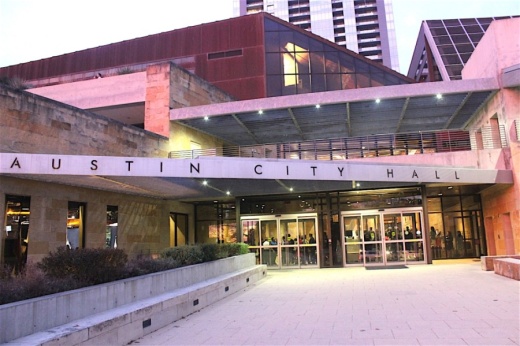Mackenzie Kelly represents Austin City Council District 6 and is one of two new city council members in 2021. Kelly is considered to be a conservative voice on a city council largely made up of progressive politicians. She has said she will look for ways to collaborate with her fellow council members. Below we asked her about some of the key issues she now faces while serving on the council.
1. You have stated in the past that public safety and the size of the Austin police force is a key priority. What do you see as the largest obstacles to funding future cadet classes?
My understanding is that the previous council learned that pulling the plug on the cadet classes was a mistake and [that] many have spoken about correcting their error by reinstating cadet classes. The largest obstacle that I see is to ensure that the majority of council is comfortable with reinstating the classes.
2. How does the Austin Police Department address some of the issues outlined in the December 2020 memo from the city’s chief equity officer? For instance, do you agree that residents in specific neighborhoods of Austin distrust the police and some APD policies contribute to a culture of fear in some areas of the city?
APD is better able to address issues such as these internally with full funding. With limited resources, APD is in a difficult position to effectively review the social impact of increased policing in high-crime areas of our city. At certain times, there are not enough officers on duty to respond to reports of crime, even among those who make the call to the police and want law enforcement present. We must do better.
3. How should the city handle the commercial growth taking place along the Parmer Lane corridor in Northwest Austin. Are there sufficient transportation options in this part of the city?
I’m open to exploring ways to reduce wait times at the many intersections along Parmer Lane as the corridor continues to grow. Commercial growth is inevitable, especially as portions of the Robinson Ranch continues to be sold to Apple and other developers. We are interested in ways to expedite permits for these developments but not at the expense of the processes we have in place to ensure traffic continues to flow, neighborhoods are protected, natural resources are safeguarded, etc.
4. Do you believe Project Connect adequately addresses future mass transit needs for Northwest Austin?
Project Connect is a huge burden on taxpayers, many of whom may not be able to afford rent soon as COVID-19 restrictions continue into the new year. Putting Austinites back to work is a greater concern for me in the meantime.
5. What should the city do to address affordable housing in Austin, particularly in District 6?
The first step is to make the homebuilding process more affordable and less cumbersome for private builders. More supply equals lower prices for homes. Northwest Austin still has plenty of room to build. District 6 has among the most affordable rent and home prices in the city, and the reason is because of continued economic growth and ease of transportation—let’s keep it that way.
1. You have stated in the past that public safety and the size of the Austin police force is a key priority. What do you see as the largest obstacles to funding future cadet classes?
My understanding is that the previous council learned that pulling the plug on the cadet classes was a mistake and [that] many have spoken about correcting their error by reinstating cadet classes. The largest obstacle that I see is to ensure that the majority of council is comfortable with reinstating the classes.
2. How does the Austin Police Department address some of the issues outlined in the December 2020 memo from the city’s chief equity officer? For instance, do you agree that residents in specific neighborhoods of Austin distrust the police and some APD policies contribute to a culture of fear in some areas of the city?
APD is better able to address issues such as these internally with full funding. With limited resources, APD is in a difficult position to effectively review the social impact of increased policing in high-crime areas of our city. At certain times, there are not enough officers on duty to respond to reports of crime, even among those who make the call to the police and want law enforcement present. We must do better.
3. How should the city handle the commercial growth taking place along the Parmer Lane corridor in Northwest Austin. Are there sufficient transportation options in this part of the city?
I’m open to exploring ways to reduce wait times at the many intersections along Parmer Lane as the corridor continues to grow. Commercial growth is inevitable, especially as portions of the Robinson Ranch continues to be sold to Apple and other developers. We are interested in ways to expedite permits for these developments but not at the expense of the processes we have in place to ensure traffic continues to flow, neighborhoods are protected, natural resources are safeguarded, etc.
4. Do you believe Project Connect adequately addresses future mass transit needs for Northwest Austin?
Project Connect is a huge burden on taxpayers, many of whom may not be able to afford rent soon as COVID-19 restrictions continue into the new year. Putting Austinites back to work is a greater concern for me in the meantime.
5. What should the city do to address affordable housing in Austin, particularly in District 6?
The first step is to make the homebuilding process more affordable and less cumbersome for private builders. More supply equals lower prices for homes. Northwest Austin still has plenty of room to build. District 6 has among the most affordable rent and home prices in the city, and the reason is because of continued economic growth and ease of transportation—let’s keep it that way.






